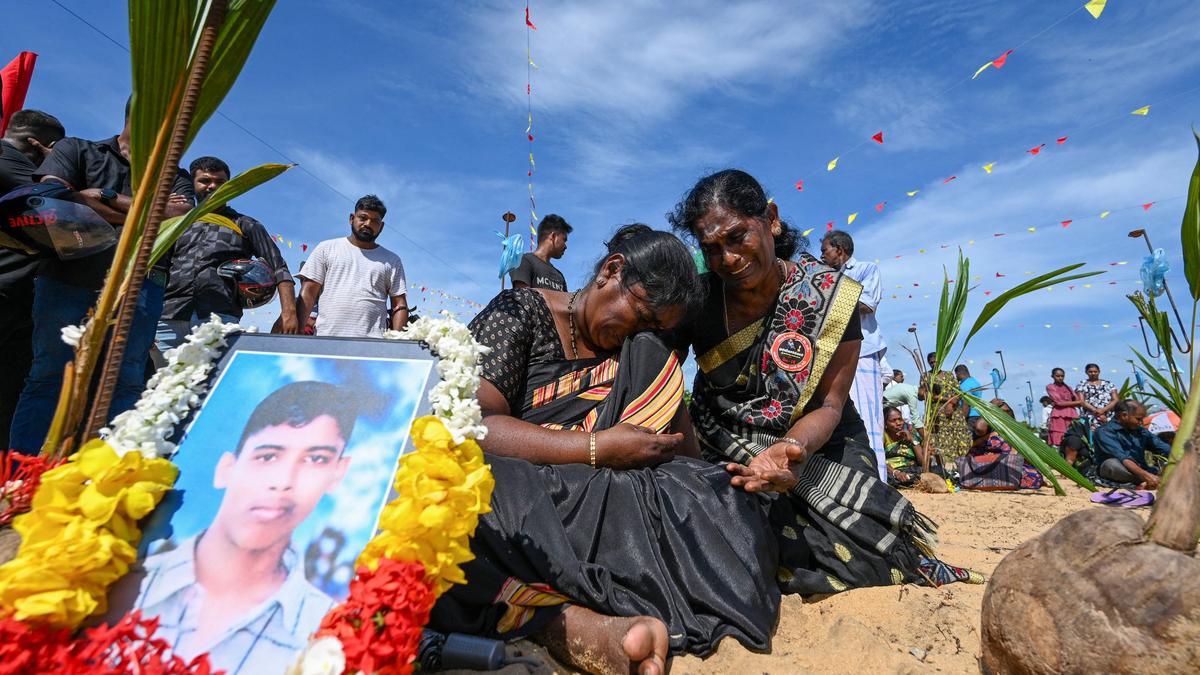
A poverty of hope among Sri Lankan Tamils Premium
The Hindu
Fifteen years after Sri Lanka’s civil war ended, a peaceful life still eludes Tamils living in the former battle zone across the island’s north and east. Many are relentlessly searching for their loved ones, while resisting attempts by state agencies to take over their lands. The widespread economic misery, only compounded by the financial crisis of 2022, and a fractured Tamil polity have left them further disillusioned.
When Antony Jesurathnam Mariapushparani, 62, recalls the horrific final days of Sri Lanka’s civil war in striking detail, it is hard to believe it has been 15 years since its end.
“That is where we prepared and had the kanji (porridge); that is where we headed to cross the Vattuvagal bridge; that is where we waited,” she says breathlessly, showing once-bloody spots in Mullivaikkal, a village in Mullaitivu district on the north-eastern coast. Many Tamil civilians had crossed the bridge in May 2009, hoping that moving into government-controlled territory on the other side would be safer.
Today the village looks calm, with large, empty plots of land. Palmyra trees line the roads and the fields are lush after recent showers. “You will not know the desperation we experienced or the tears we shed here. I saw the destruction with my own eyes,” she says of the time when tens of thousands of Tamils, including women, children, and infants, were killed in the Sri Lankan armed forces’ final offensive, even in areas declared a “no fire zone”. Some in Sri Lanka and beyond have likened this bloodbath to Israel’s ongoing deadly war in Gaza.
As survivor accounts like Mariapushparani’s make evident, memories don’t die. “That is where bodies were heaped,” she says finally, pointing ahead. It is the site of carnage in Mullivaikkal, where Tamil families assemble every May 18, the last day of the final battle between the Sri Lankan military and the Liberation Tigers of Tamil Eelam (LTTE), to pay homage to relatives.
After the remembrance ceremony, where those assembled lit lamps and offered flowers to photographs of their relatives, Mariapushparani sits under the lone neem tree in the barren, sandy ground, for some respite from the scorching sun. Hailing from Mullaitivu, she moved to Mullivaikkal village after the Indian Ocean tsunami of 2004, unaware of the next wave of destruction she would witness in barely five years. Having endured staggering losses and hardships like virtually every family in the district — her son has been missing since 2010 — she has one word to describe the current situation of Tamils: “Varumai (poverty)”.
Many in the coastal village rely on fishing for a living. The catch has fallen and other jobs are scarce. “After 15 years, the plight of Tamils is poverty. That is all there is to say. Whether people are able to eat or not is the question.”
Also read | Tamils in Sri Lanka do not enjoy equal rights, Sri Lankan MP says in Chennai











